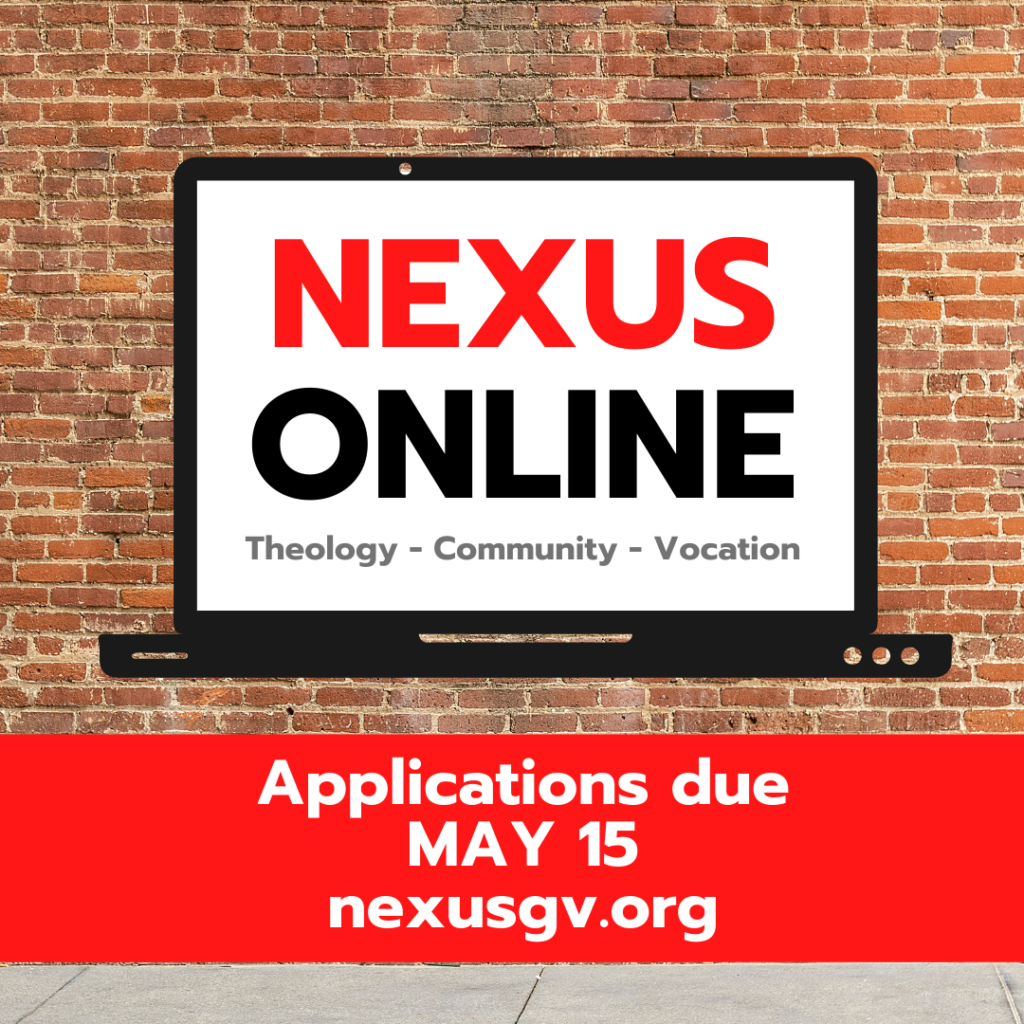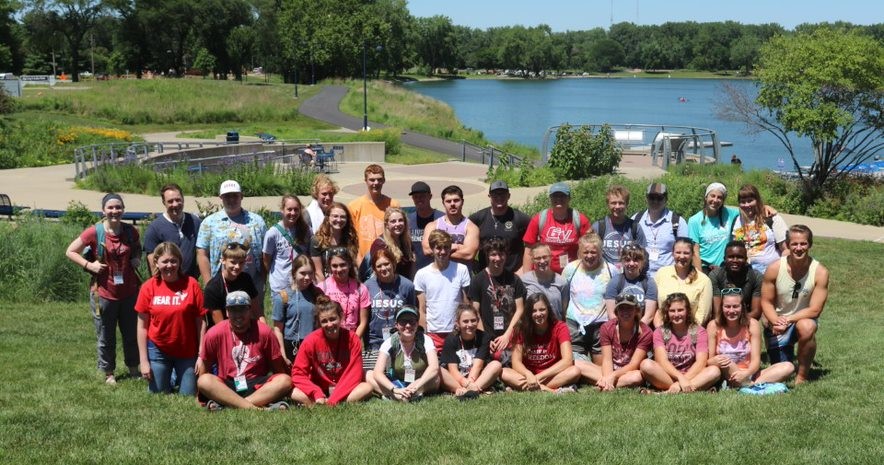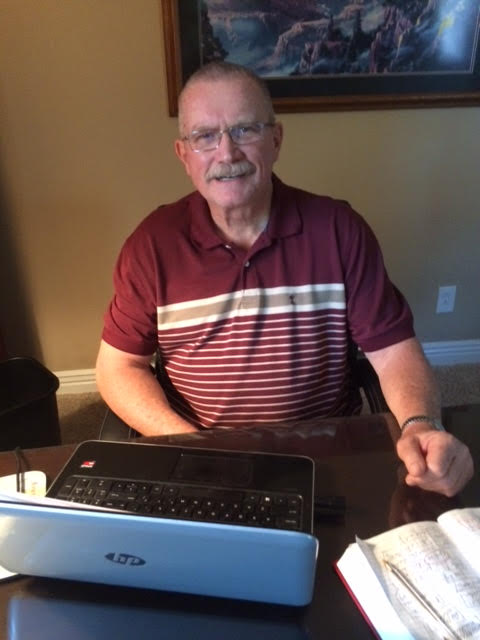“MUCH LAND STILL REMAINS TO BE CONQUERED”
Joshua 13: 1 says, “Now Joshua was old and advanced in years; and the Lord said to him, ‘You are old and advanced in years.’” I can imagine Joshua saying, “Thank you, Lord. I really did not need to be reminded of that.” Then the Lord added, “Much land still remains to be conquered.”
Joshua, it’s not all over. There is still much important work for you to do.
I can imagine the Lord saying the same thing to all of us who are retired or who are approaching retirement. “Much land still remains to be conquered. It’s not all over. There is still much important work for you to do.”
I have heard it referred to as both the second chapter and the third chapter of life – that time in life (usually during retirement) when time is more abundant because the kids are grown and we do not have to work full-time in order to earn a living.
I retired a little over five and a half years ago. For me a major question since then has been –
What does God want me to do with what He gave me the opportunity to learn and with the skills He gave me the opportunity to develop during my full-time working years now during this next chapter in life?
I think of Moses. Moses did not begin his major life work until the age of eighty. I am eight years short of the age of eighty. Moses spent the first forty years of his life as the son of Pharaoh’s daughter – pampered and spoiled and unable to control his temper. There was no way that at the age of forty he would have been ready to lead several hundred thousand stiff-necked, stubborn, and complaining people through the wilderness. It was only after another forty years of herding the flocks of his father-in-law Jethro in the desert that Moses knew how to survive in the desert and that Moses was ready to lead God’s people through the desert. It was only at the age of eighty that he was ready.
What has God been getting you ready for? What does God have in mind for you? God is the one who sent the plagues, parted the waters, and provided manna in the wilderness. But Moses was the man whom God had prepared to lead His people.
What has God been preparing you for? I know that for me the opportunities I have had in retirement to do supply preaching and teach adult Bible studies have been a blessing, and the opportunity to serve as executive director of Lutheran CORE is the perfect thing for me at this time in life.
I asked three retired persons if they would write about what they are doing now in ministry to use their accumulated insight, wisdom, gifts, knowledge, skills, and experience in their current chapter of life. They are Robert Benne, professor at the Institute of Lutheran Theology and former professor of religion and director of the Center for Religion and Society at Roanoke College; Carol Peters, retired LCMC pastor in Arizona and one of the CiT (Congregations in Transition) coaches; and Steve Shipman, former executive director of Lutheran CORE, currently serving as an interim pastor of an NALC congregation in Pennsylvania.
Here is what they wrote:
Dr. Robert Benne wrote –
In 1999 I went to the Roanoke College President’s office to tell him I wanted to relinquish my endowed chair and my tenured position on the faculty. I was only 62. I was weary from doing too many things and I wanted a new chapter in my life. Graciously, he told me to think about it for a week or so since it was a pretty drastic move. I came back in two weeks to reaffirm my decision, with the proviso that I continue to run the Center for Religion and Society which I had founded in 1982, as well as teach a few electives as an adjunct senior lecturer.
I simply did not want to give up the activities I had done with some skill and satisfaction for nearly 35 years. I relinquished the directorship of the Center in 2012. A new online seminary — the Institute of Lutheran Theology — came calling so I returned to teaching Christian ethics at a seminary after having been a college teacher for 30 years. At the same time I gave up teaching at Roanoke College.
I now teach one course in Christian ethics per term at the ILT. Another great teaching opportunity came up as we moved in 2015 to a large and thriving NALC congregation, St. John Lutheran. There I offer courses that draw from 30-60 adults. Right now I am teaching a course on Bonhoeffer’s Cost of Discipleship to 50.
Meanwhile, I am busily doing another activity I love—writing. Since 2010 I have written three books: Good and Bad Ways to Think about Religion and Politics; Keeping the Soul in Christian Higher Education: a History of Roanoke College, and my memoirs, Thanks be to God: Memoirs of a Practical Theologian. I have also written a number of chapters in other books.
I recount all this to illustrate what I think is true for most people who have taken up a vocation that brings deep satisfaction and usefulness to church and society. In my case, I have been a Christian teacher and writer for 55 years. Those activities have brought intrinsic meaning and joy over the years, and I hope they have been useful to the church. But the point is that we should not stop doing those sorts of vocational pursuits if we continue to find satisfaction in them and others (church and seminary in my case) find them valuable.
When I advise friends who are wondering what they should do in their retirement I recommend that they continue to exercise their talents and training in something continuous with what they did in their full-time employment. For example, I advised an exhausted emergency room doctor to exercise his talents on a charity hospital ship — something he had always wanted to do — rather than devote his time to other sorts of voluntary activities. I advised a retiring pastor to find some diminished role in another church so he could continue preaching, teaching, and offering pastoral care. Perhaps this sounds like semi-retirement, but if so, I commend it. One lives a more manageable life with more leisure, freedom, and ample naps. And one continues one’s calling in a more customized way.
I am willing to admit that some folks need to stop what they are doing and do something very different, or do nothing at all for a time, but that would not work for me. On the worrisome side, what will happen when I cannot teach or write? At 82 that may come sooner than later. Then I will be tested whether I have been tempted to justify myself by my works. I dearly hope that I will then discover the depth of the meaning of being justified by grace alone through faith alone in Christ alone.
* * * * * * *
Pastor Carol Peters wrote –
After being retired for two years, I discovered what was for me a liberating testimony by J. Vernon McGee, a pastor in Los Angeles many years ago as well as a radio preacher. I had been feeling guilty for not missing full-time ministry more than I did. In his commentary on the Psalms, Pastor McGee wrote: “…the happiest time of my ministry began when I retired from the pastorate; the most spiritually profitable time of my life began at that moment…. Do you know why? I have whittled my life down to the one thing I want to do—teach the Bible.”
Indeed, the now four years I have been retired have been very “spiritually profitable.” I now have time to spend in sessions of intercessory prayer for individuals, for the spread of the Gospel, for nations, for persecuted believers, for the health of the Church, etc. I prayed, of course, while I was a pastor, but I never had a lot of time to devote to the ministry of intercession. There is also much more time each week to spend alone with Jesus. And like Pastor McGee, I am enjoying teaching the Bible in various settings. I have always loved teaching, only now I have more time to spend digging into the Scripture and developing various courses than my schedule allowed when I was overseeing numerous programs at the large church I served as associate pastor.
My situation as a retired pastor is rather unique in that I am still a worshipping member of the church I served as a pastor as is the now-retired senior pastor with whom I worked. Our congregation left the ELCA some years ago, and with the new senior pastor’s approval – and I should mention that he served as an associate pastor with us for about ten years before becoming the senior pastor – we made the decision that after retiring, we would stay away for six months or so, allowing a “new normal” to develop, and then we would return. We do keep an intentionally low profile but are pleased to assist in any way when requested by the current senior pastor.
And that has worked out beautifully in our situation! I have maintained my friendships made over the years. I have taught in our adult education program. I was asked to continue writing devotional studies for the congregation for Lent which I had done for many years while a pastor. Now I have much more time to research and develop those studies! And then, of course, there is occasional preaching and presiding at memorial services – not frequent, but occasional.
Those activities, as well as occasional opportunities to serve other congregations by supply preaching or teaching a short-term class, have made for a happy time of ministry! No longer the demanding schedule of the pastorate yet the continued service to the Lord and His Church.
* * * * * * *
Pastor Steve Shipman wrote –
Recently a person trying to do some work around my house who wanted me there when he did it, was trying to coordinate schedules with me. Finally in frustration he turned to his wife and said, “That guy flunked retirement.” I confess that I cannot argue with that claim.
Since I work half a day each week in a program designed to keep people who qualify for institutional care out of nursing homes, I realize how undeservedly blessed I am. I used to tell people I “take care of a bunch of old people,” then one day I looked at the computer and discovered a third of the folks were younger than I was. Several years have passed, and it may be closer to half. Yet they are all dealing with serious health issues, mostly through no fault of their own, and need assistance with the activities of daily living.
This year I am both serving as District Governor for the Lions club in my three-county area and also as half-time interim pastor of an NALC congregation as it searches for a full-time pastor. That in addition to my chaplaincy. I didn’t plan it that way, but I was committed to the Lions and was the most logical person to do the interim. Yes, it has been a crazy year and I am looking forward to re-retiring when the congregation issues its call. But I’m not aware my ordination had a termination date. God didn’t call Moses until he was 80, and God retired him (in much better health than I am today according to Deuteronomy) at 120. So who am I to complain?
We all know people who retired in good health and within a brief period became seriously ill. I’m not ready to sit in a lounge chair watching those dumb Hallmark movies with my wife. She and I would like to do more traveling and I’d like to get back into biking on the many local rail trails. But in the end, I am being selfish if God gives me opportunities to serve people and I refuse His call.
Science has proven that being active and using one’s brain power can put off many of the medical issues associated with aging. And since we old people are especially subject to depression, it is good to get involved in meaningful activities where we can see other people being blessed instead of whining about the inevitable changes in our own bodies or in the world around us.
And I have found that supply preaching and interim work carry a different dynamic than a long-term pastorate, as does my part-time chaplaincy. I have never felt so appreciated in my life, and I have to admit that my ego enjoys the compliments I receive. But I also know my track record, and there is a long list of people from parishes I served who would disagree, usually with valid reasons. I would urge retiring pastors and church workers that, after a period of time sitting in the pews to unwind, you be open to any opportunities God gives you to use your gifts to help congregations in transition or in a chaplaincy setting.
I’m having more fun than I have had for years, and I also feel that I am in many ways doing more good than I may have done in my called ministries. Some of that is having learned from my mistakes, but most is due to the different context. I’m hoping that the Almighty lets me slow down a bit, and I don’t want to keep at this as long as Moses, but I trust that God’s purpose is more important than what I think my desires might be.
* * * * * * *
If you were to write about what God is calling you to do at this point or time in your life, what would you say?
Blessings in Christ,
Dennis D. Nelson
Executive Director of Lutheran CORE
[email protected]
909-274-8591














